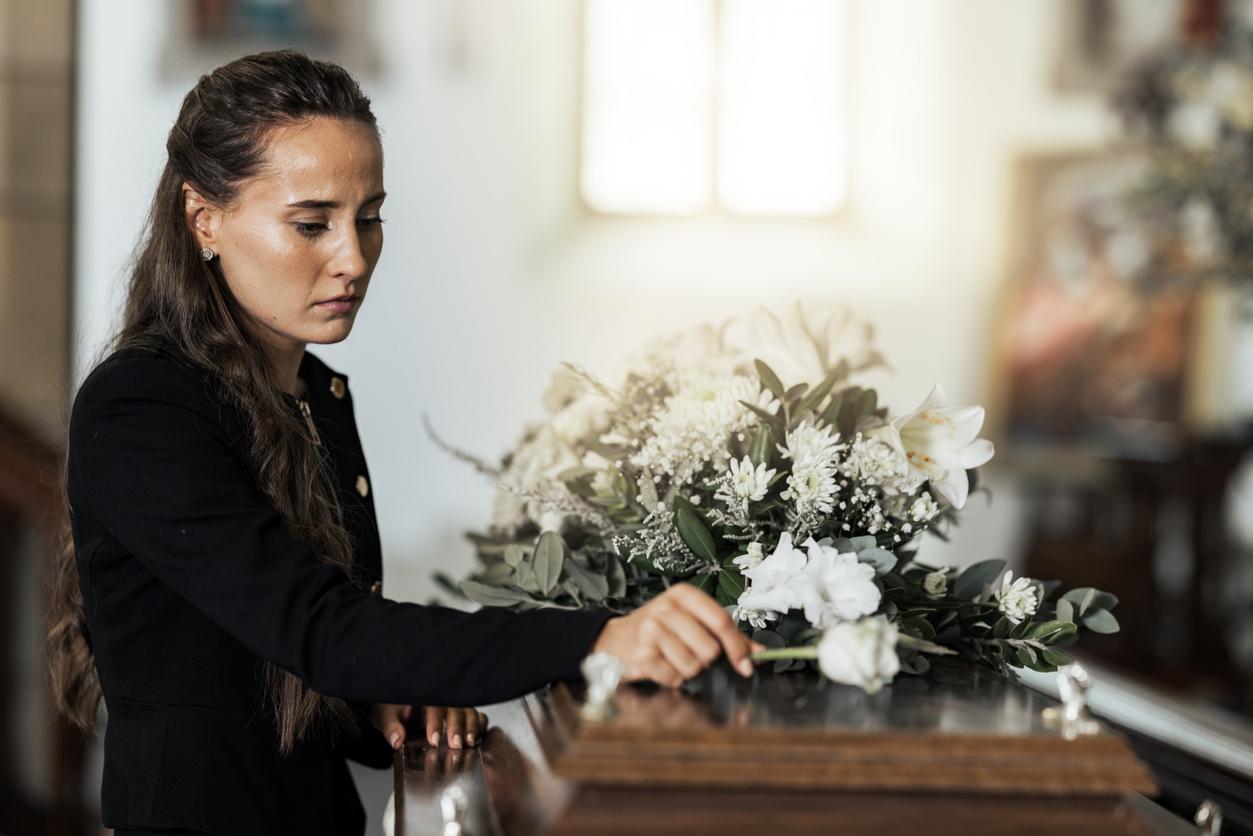Grieving is the period following the loss of someone you know. ” This person may be deceased, but we can also speak of mourning for someone living, within the framework of a divorceor an Alzheimer’s patient for example “, details Valérie Sengler, psychoanalyst in a liberal practice in Saint-Mandé (94). ” In any case, mourning is the process that allows us to realize that “we two are over”. “
What are the stages of grief and how do they translate?
The mourning of someone who has been ill for a very long time (cancer, Alzheimer’s…), may, at first, result in relief. The relief of no longer seeing the person suffer, of course. And also, even if it is sometimes difficult to recognize it without guilt, to no longer have to deal with it every day. ” After which, begins the real mourning, when the good memories resurface and only the happy times that we have lived together are remembered. “, explains Valérie Sengler. When death occurs suddenly, (accident, heart attack..), the first step is amazement. ” The individual is then unable to realize that the person is indeed dead. “
The following steps are generally common:
- The infinite sadness: “you are carried away by a wave, you are sinking”
- Then the comeback: “you begin to realize that there is still joy in your life”
- It can also be accompanied by anger: “Anger is directed at the person who abandoned you”.
In the case of a deceased relative, loss of appetite, insomniaa depression, the desire to join the deceased can accompany mourning. ” The malaise that we experience is so strong that it often has to come out “, explains the psychoanalyst. This can then manifest itself in skin diseases, stomach aches or headaches for example. ” A patient told me he had a heart attack following the death of his wife. “She broke my heart” are her words. “
Every grief is different
Everyone will experience their grief more or less well. ” If the person had a happy childhood, with a job, friends, hobbies… They will be more resilient “. Valérie Sengler also explains that it is these people who will also more easily seek help to get better. In addition, the experience of mourning will vary according to the emotional bond with the deceased.
When you lose a parent, it is considered “normal”, it is in the order of things and we are prepared for it. ” It is then necessary to mourn his childhood. It is also the first time that we say to ourselves that “the next one will be me “, informs the psychoanalyst. This loss therefore generally makes you aware that you are aging. On the contrary, if you lose a child, it is something “abnormal”. The couple must then face it. ” Often they separate, because staying together is not successful in mourning. On the other hand, they can continue their story and have other children “. Valérie Sengler realizes that in any case, there will be a before / after.
Who do I turn to for help?
” From the moment when you no longer eat, or you have the impression of lacking oxygen, of not moving forward, of crying all the time, that the suffering is too great, and this, for more than 2 weeks, it important to consult a professional “. With a psychoanalyst, who can help overcome so-called “prolonged or complicated” bereavement, the goal will be to find anchor points on which to cling. The patient will have a place to tell his story with the person and he can be listened to.” While the person is generally “haloed” after his death, psychoanalysis will also aim to continue to perceive the person as he was, to dissect the relationship and identify what he brought us. “. Valérie Sengler explains that she adapts to each individual in order to succeed in bringing out the pain and that there is a termination. This can, for example, be done by drawings, letters or even a small ceremony. .
It is also possible to opt for a cognitive behavioral therapy (TCC), performed by a psychologist or psychiatrist. The problem is first analyzed, its triggers understood and objectives to be achieved are developed. These therapies are based on learning new behaviors, and a more positive way of thinking. In this case, the patient is more active, he becomes a real player in his “healing”.
Finally, associations like Dialogue & Solidarity, Grieving, Taming Absence or the Jonathan Pierres Vivantes National Associationalso have a listening number and organize support groups to break isolation.
What to do if you are close to a grieving person?
” If you are faced with someone in mourning, the best thing is to go to this person and say “I’m here, I can hear everything” “, advises the psychoanalyst. According to her, if this person explains to you that she is suffering a lot, you should not tell her that it will pass, but rather “I know, I am not judging you”. Then, the most important is to try to get her outfrom home, by going to the cinema or to a restaurant for example. If no improvement is observed, do not hesitate to make an appointment for this person, and accompany him. ” I like to say that we are a crystal with many facets. When you lose someone, one of these facets is destroyed, life will never be the same again, you have to find ways to rebuild yourself. “.
Read also :
The trials we go through forge wisdom
Psycho: what happens when a child loses his pet?


















